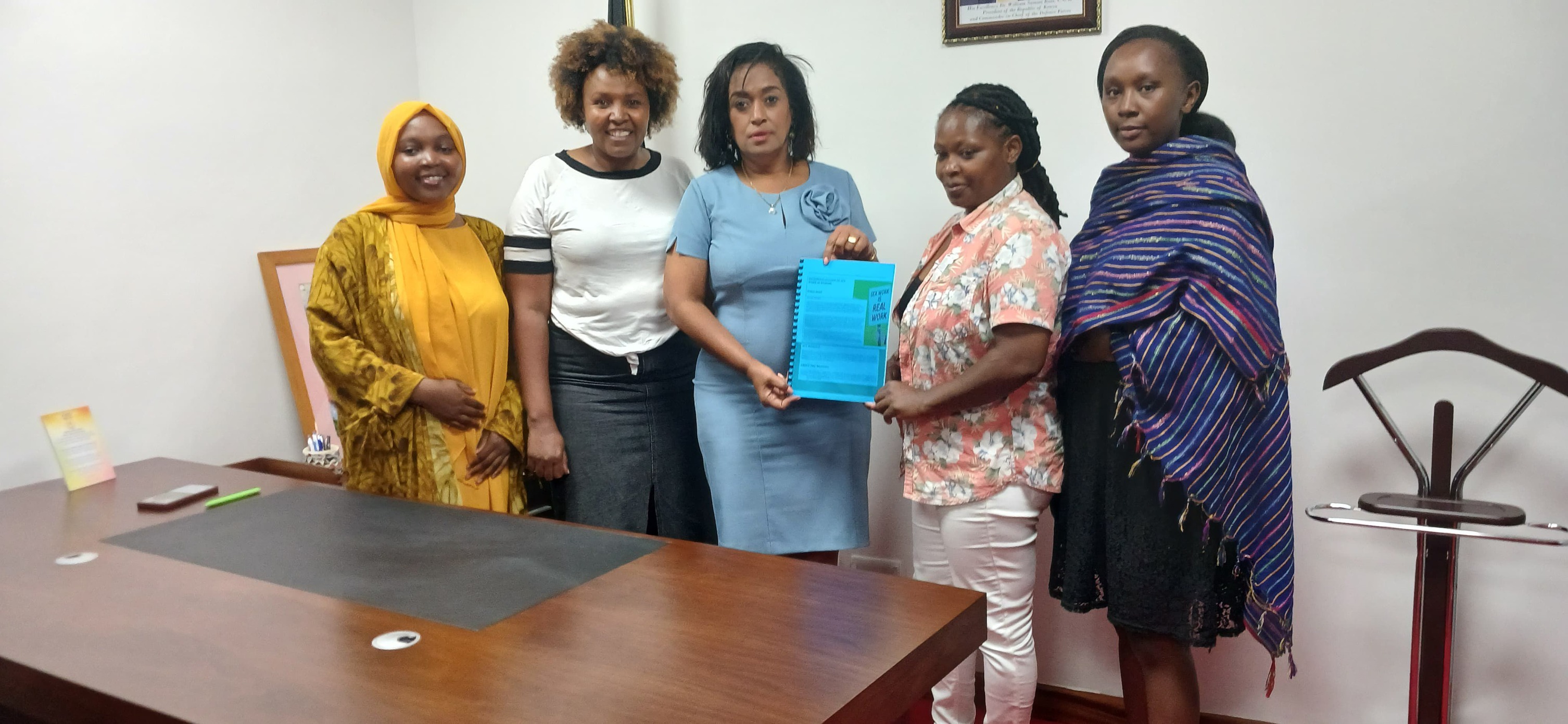

Women Collective Kenya, KELIN and Knight Nurse Non-government organisations said sex workers’ systemic discrimination, violence and legal injustices that perpetuate their marginalization should be addressed.
“It would also form better relationships between sex workers and law enforcement, reducing exploitation and abuse, while enabling government agencies and civil societies to implement harm reduction strategies and support their services more effectively,” the lobbies stated.
The lobbyists’ officials spoke to the Star shortly after they presented a policy document on 'Decriminalisation of Sex Work' to Nairobi Woman Representative Esther Passaris at her office in Nairobi on Thursday.
“Today, Women Collective Kenya, in partnership with KELIN and Knight Nurse presented a policy brief urging the repeal of Sections 153, 154 and 155 of the penal code, which continue to expose sex workers to violence and exploitation,” Women Collective Kenya NGO Executive Director Ruth Mumbi said.
Passaris acknowledged receipt of the document stating she commits to supporting sex workers’ social protection and tabling a bill to decriminalize sex work.
“Today, I received a policy brief from Women Collective Kenya, KELIN and Knight Nurse calling for the repeal of penal code sections 133, 154 and 155 which expose sex workers to violence. Through the National Government Affirmative Action Fund, I commit to supporting their social protection and tabling a bill to decriminalise sex work,” Passaris said.
Mumbi said the move was a critical step towards dignity, safety and justice for all sex workers.
“Sex work is work,” Mumbi said.
“Under Kenya’s Penal Code, sex work remains criminalized, subjecting workers to police harassment, arbitrary arrests, and economic instability. The legal framework also denies them access to justice and restricts their ability to work safely,” the policy document reads in part.
“Additionally, criminalisation contributes to significant public health concerns, with female sex workers experiencing an HIV prevalence rate of 29.3% and facing barriers to healthcare and reproductive services due to stigma and discrimination.”
The lobbiyists said despite legal restrictions, sex work remains a critical source of livelihood, with more than 60% of sex workers supporting dependents.
However, the current laws force them into unsafe environments without economic stability or social protection.
They stated that the international models, such as New Zealand’s decriminalization approach, demonstrate that legal reforms can improve occupational safety, increase access to justice, and enhance public health outcomes.
“Recognising these benefits, the NCAJ policy brief recommends repealing punitive laws and introducing legal protections that uphold the rights and dignity of sex workers. To ensure meaningful change, the brief emphasizes the need for improved healthcare access, law enforcement accountability, and economic protection for sex workers. Public awareness campaigns are also crucial in combating stigma and fostering social inclusion.
Decriminalisation in Nairobi presents an opportunity to protect human rights, improve public health, and create safer working environments while promoting economic inclusion and dignity for sex workers.”
Mumbi said the policy brief was informed by insights from consultations with sex workers, human rights activists, and grassroots organizations.
Developed to address the intersection of legal, social, and health challenges faced by sex workers in Kenya, it highlights the harms of criminalisation, including violence, extortion, and restricted access to healthcare.
“The brief advocates for legal reforms that uphold dignity, safety, and economic inclusion, aligning with international best practices in human rights and public health,” Mumbi said.
The bill to decriminalise sex work by both males and females in the country was proposed by the Kenyan Judiciary in 2023.
The bill amending the Penal Code, according to the Judiciary, sought to change how the judicial system deals with offenses involving human rights.
Sections 153, 154 and 155 of the Penal Code criminalise prostitution and impose a prison sentence of up to three years.
Section 153 of the penal code defines a male prostitute as a male person living on earnings from prostitution or is proven to live on the earnings of prostitution or is proven to live with a prostitute or has aided in the act of prostitution is guilty of a felony.
Section 154 of the Penal Code of Kenya criminalizes women who live on the earnings of prostitution or assist in prostitution.
Section 155 pertains to “premises used for prostitution,” meaning it allows a magistrate to issue a warrant to search a house suspected of being used for prostitution if there is reasonable suspicion that someone is living off the earnings of a prostitute residing there; essentially enabling police to investigate and effect arrests.







![[PHOTOS] Gachagua warm reception in Nyandarua](/_next/image?url=https%3A%2F%2Fcdn.radioafrica.digital%2Fimage%2F2025%2F04%2Fc2a8c64d-5577-4768-a0ac-513c8876c288.jpeg&w=3840&q=100)


